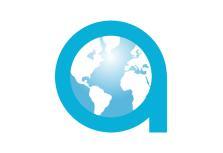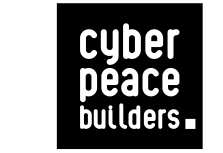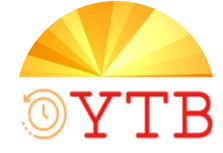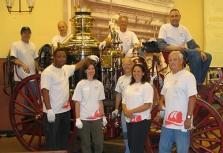
Opportunity Details
Are you passionate about the arts and skilled in social media management? ArtsEarth is seeking a dynamic individual to take on the role of a Social Media Manager. In this exciting position, you will be tasked with maintaining our online presence across various platforms including Facebook, Google, Instagram, LinkedIn, X/Twitter, and more.As our Social Media Manager, you will play a crucial role in creating engaging content, managing posts, and interacting with our followers. Your creativity and communication skills will be key in shaping ArtsEarth's image and achieving our marketing objectives. Attending monthly board meetings will also be part of your responsibilities.
We are looking for someone who is not only tech-savvy but also stays updated on digital trends and social media advancements. Your ability to express our company's vision in a compelling manner will be highly valued. If you are ready to boost our online visibility, drive web traffic, and enhance customer engagement, then we invite you to join our team as our Social Media Manager at ArtsEarth. Apply now and be part of our mission to promote the arts worldwide!

Opportunity Details
Are you a WordPress wizard with a passion for creating seamless user experiences? ArtsEarth is on the lookout for talented individuals who can bring to life a unique platform feature. We are seeking experts who can develop functionalities like Sign-ins via social or ArtsEarth, implement 2-factor authentication, enable event posting with approval processes, and even integrate ticket-selling capabilities. If you are ready to showcase your skills and be part of an innovative team, we invite you to join us on this exciting journey at ArtsEarth!Who We Are
ArtsEarth is a 501(c)3 arts venture committed to promoting artists, informing the public of quality arts engagements worldwide, connecting artists within their communities, and publishing original content within dance, film, literature, music, theatre, visual, and multimedia.
Job Info
• We are seeking a WordPress administrator / developer.
• This position is a volunteer part-time position, and is based in the San Francisco Bay Area.
• This position has long-term growth opportunities.
Responsibilities
• Cyber security
• Social media integration
• eCommerce (selling tickets)
• Role administration
• Maintain installed plugins
• Events Manager
• Toolset
• Vaultpress
• Yoast SEO
• AuthO (specifically management API tokens)
• Gravity Forms
• Constant Contact
• Adjust hosting server configuration settings as necessary
• Be able to restore site from backup, if necessary
Qualifications
• Experience using git and continuous-integration for distributed software projects
Bonus
• BA/BS degree in Computer Science
• Analytical thinker, with excellent debugging skills
• WordPress backend DB skills and knowledge

Opportunity Details
Sickle Cell Disease is a rare, painful, genetic, blood condition that affects people of tropical and African decent. The Sickle Cell Association of BC (SCBC) is committed to educating and advocating for these individuals, their families and their healthcare providers.The SCBC is looking for a compassionate tech wiz to help us stay current, connected, and protected with this ever evolving technological world we find ourselves in now.
Duties:
- online security
- website optimization
- online posts
- setting up and maintaining Youtube site for SCBC
- general tech support

Opportunity Details
The Sickle Cell Association of BC (SCBC) is a not-for-profit organization looking for someone to help bring in more members to our organization. Sickle Cell Disease is a rare, painful, genetic, blood condition that affects people of tropical and African decent. The SCBC is committed to educating and advocating for these individuals, their families and their healthcare providers.We are expanding our organization and are looking for someone who is great at bringing in members to an organization. We would like someone with experience in membership coordination.

Opportunity Details
--> Register here to do volunteering in our program: https://cpb.ngo/volunteers <--About the CyberPeace Institute
The CyberPeace Institute is an independent and neutral NGO whose mission is to uphold people’s rights to security, dignity, and equity in cyberspace. A core program of the Institute is the CyberPeace Builders, which provides free cybersecurity assistance to NGOs working with vulnerable communities—offering a unique, collective contribution toward cyberpeace.
CyberPeace Builders
The CyberPeace Builders is a global cohort of corporate volunteers—both local and international—who support NGOs that protect vulnerable populations in critical sectors such as healthcare, water and sanitation, food and agriculture, energy, and information. By offering industry-grade cybersecurity expertise, CyberPeace Builders help NGOs:
-Understand the cyberthreats they face.
-Strengthen their internal capabilities and resilience.
-Upskill their staff to safeguard vital services.
The program was launched in Geneva in July 2021 and has since expanded all around the world. In 2025 more than 400 Nonprofits and 1,000 volunteers are part of the initiative.
Service Provision through Expert Volunteers
The CyberPeace Institute unites its network of expert volunteers to deliver cybersecurity assistance to NGOs worldwide. The CyberPeace Builders program is a free service for all NGOs delivering critical services, aiming to uphold their operational capacity and protect the communities they serve.
Volunteers are sourced from local SMEs, and larger corporations, and are coordinated by the Institute.
In addition to providing direct cybersecurity support, the CyberPeace Builders program offers a unique training called “Cybersecurity & Humanitarian: How to Communicate the Code.” This course equips volunteers with soft skills to:
-Communicate effectively with NGOs experiencing cyberattacks.
-Understand key concepts in humanitarianism, diversity and inclusion, digital colonialism, and empathy.
Graduates of this training receive a verified certificate that can be shared online.
Be a Volunteer
The CyberPeace Builders network is open to professionals with experience in cyber and a passion for giving back to the community. As a volunteer, you will directly assist nonprofits organizations, helping those who need it most.
Recruitment Criteria:
-Volunteers must be employed by a trusted organization (SME, large corporation).
-A background check may be required.
-A minimum of 1 year of cybersecurity experience is necessary.
Join Us
If you are interested in volunteering with the CyberPeace Builders program, please register here:
https://cpb.ngo/volunteers
Help us protect the most vulnerable communities and foster cyberpeace worldwide.

Opportunity Details
Assist YTB (Youth TimeBanking) with writing content for digital stories, history of organization, preparing material for annual report, sections for grant application, marketing kit, donor communications, e-mail newsletter.
Opportunity Details
Bringing Justice Home is building a new kind of neighborhood one relationship at a time, a neighborhood that is not segregated by geography, race, and class, but rather one that is integrated through our vision of shared resources, shared outcomes, shared dreams.Bringing Justice Home is actively seeking individuals who are passionate about our missin and vision, who embrace our values, and who have professional expertise in areas of need to join our nonprofit board. Successful candidates will possess one or more of these skills and qualities:
experience with fundraising, marketing/PR, social media, videography, data analysis, strategy development and business planning; accounting, law, public health, nutrition; empathy and compassion; commitment to diversity, equity, and inclusion; ability to treat all persons with dignity and respect; intermediate to advanced user of common computer applications; graphic design skills; creativity, curiosity, and open-mindedness
Available Shifts
| Shift Name | Signup Max | Start | End |
|---|---|---|---|
| Term of Membership | 6 | n/a | n/a |

Opportunity Details
SAIVA is delivering boxes for their fundraiser. We need help dropping off the boxes on the individuals porch. Small boxes (1.5 lbs) with no more than 10-12 drop offs in close location. We estimate Max 1.5 hours.Please let us know if can help!
November 7th anytime between 10am-7pm
November 8th anytime between 10am-7pm
November 9th anytime between 10am-5pm
Available Shifts
| Shift Name | Signup Max | Start | End |
|---|---|---|---|
| General- 1 | 2 | n/a | n/a |
| General- 2 | 2 | n/a | n/a |
| General- 3 | 2 | n/a | n/a |
| General-4 | 2 | n/a | n/a |
| General-5 | 3 | n/a | n/a |
| General-6 | 2 | n/a | n/a |
| General-7 | 2 | n/a | n/a |

Opportunity Details
The Fire Museum of Maryland would not function without the service and dedication of our volunteers.
Retired firefighters, historians, woodworkers, historic re-enactors, archivists, and mechanics all play a vital role in our ability to maintain, preserve, and restore our collection and buildings.
Here are just a few examples of the many things our volunteers help us with. If any of this piques your interest, please get in touch with us!
Rebuilding fire alarm telegraph instruments
Tuesday Night Work Crew (7-9:30)
Repairing damaged artifacts
Scanning and cataloging photographs and other items
Restoring our wooden firehouse doors
Restoring from the frame up our 1920 Seagrave
Constructing new scenes on our Holiday Train Garden
Painting and polishing
Buildings and Grounds maintenance
Construction projects
We always have items needing our attention, and rarely do we have enough time! Any help you can provide is greatly appreciated.

